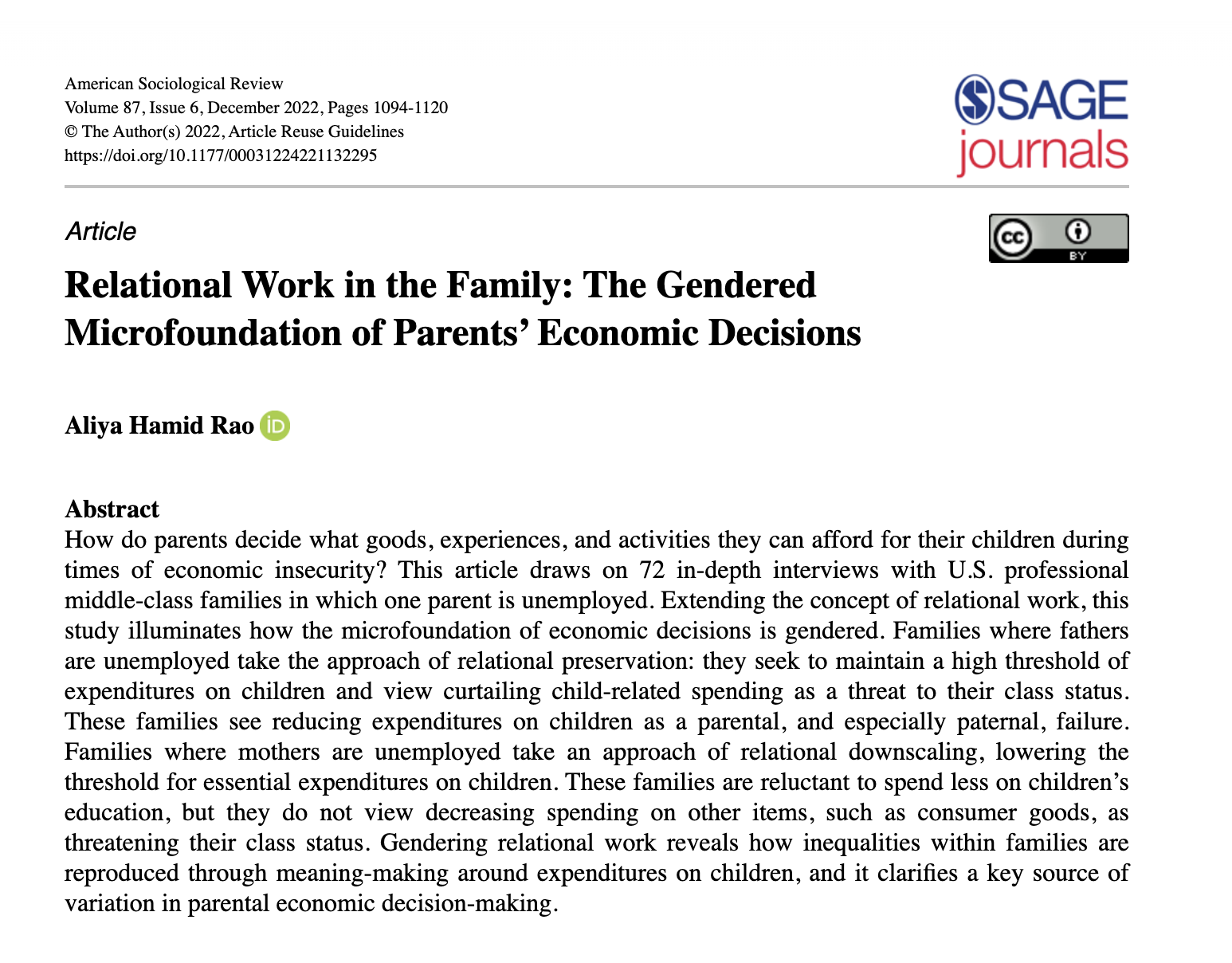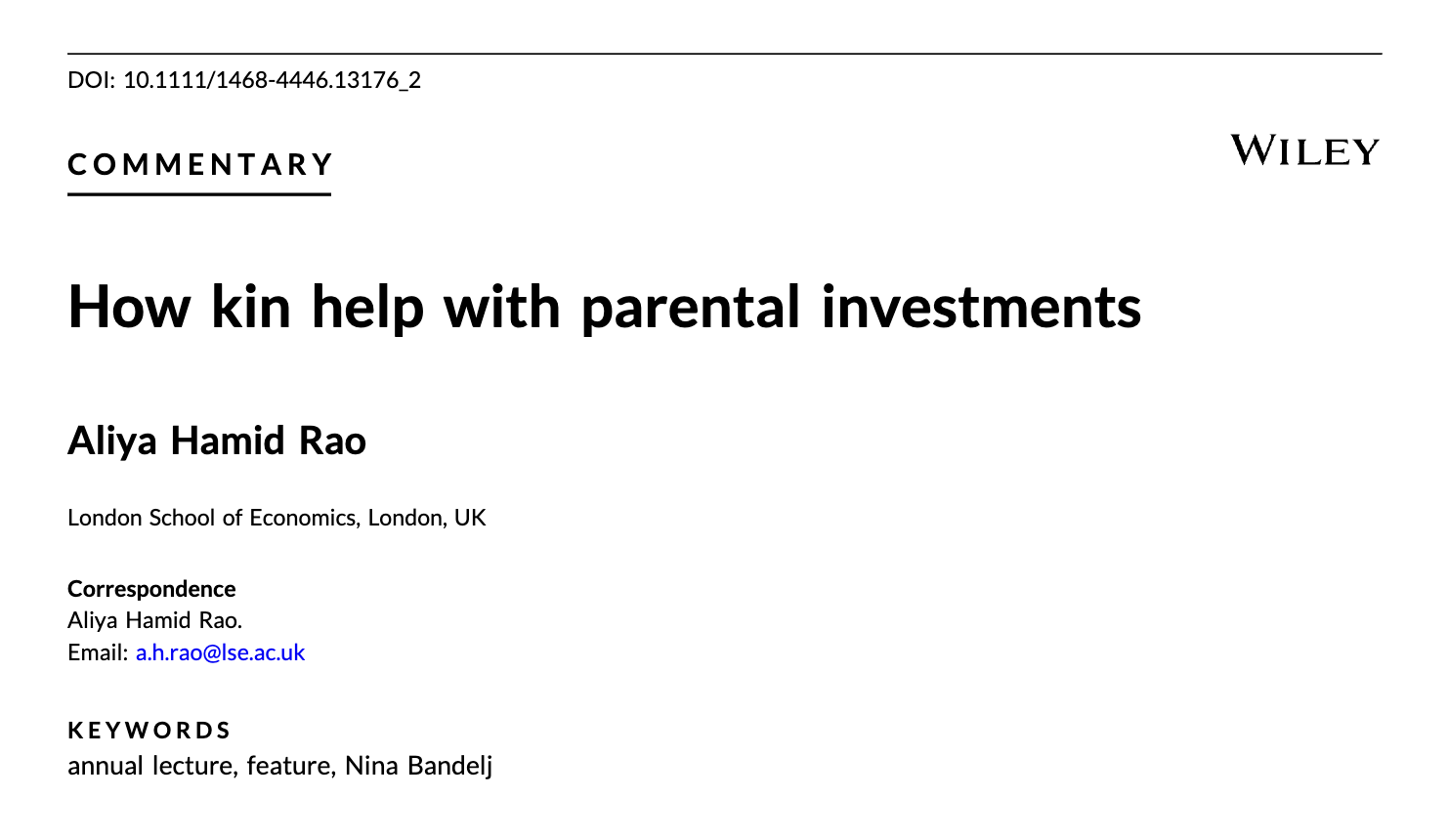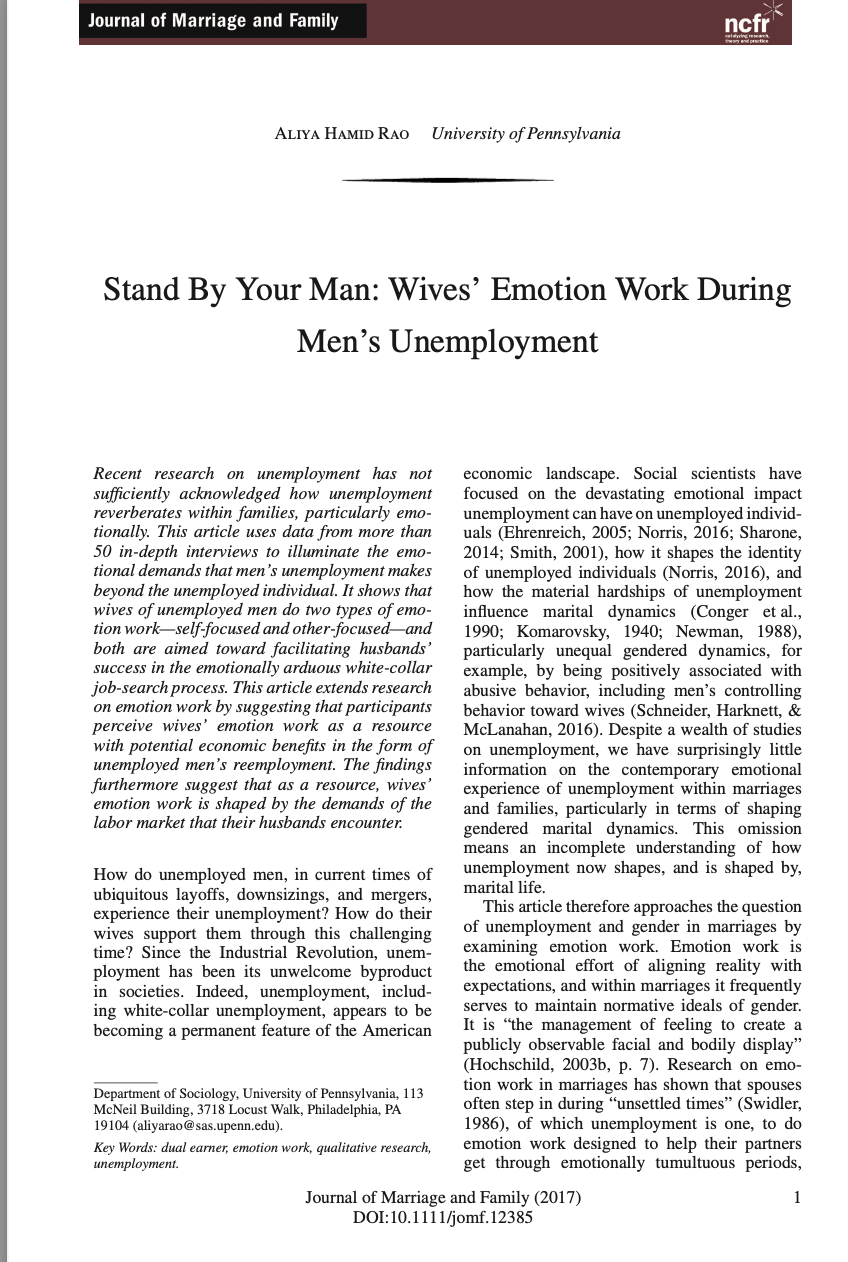Neoliberalism gets under our skin, shaping how we think, feel and experience our worlds. My core research agenda takes this insight as a starting point and uses qualitative methods to understand how economic risk and uncertainty – endemic of the increasingly financialized and globally dispersed structure of paid work – permeate and shape people’s subjectivities, gendered practices, and social relationships in the institutions of work and family.
I have two related ongoing strands of research:
Job Loss in Journalism: Automation of work processes and frequent cycles of layoffs are transforming work and workers’ experiences. These two trends are acutely captured in the journalism sector, which AI experts identify as most exposed to AI-led automation and where media organisations continue to undergo repeated layoffs. These trends may be changing the composition of the sector by pushing some workers out of it altogether, potentially exacerbating social inequalities already endemic to journalism. In this project, I examine how these macro-level changes recast journalists’ lives as well as the journalism sector.
The Connective Labour of Career Coaches: Biases in the hiring process are attributed to hiring managers’ concerns with “chemistry” and “fit.” Hiring managers are not the only, or even the most important, group of people in shaping hiring processes in upper echelons of work. An overlooked group are LMIs, such as career coaches and recruiters, who curate which candidates are placed in front of hiring managers (often a proxy for employers) in the first place. In this project, I contribute to social science expertise by clarifying how LMIs match unemployed job-seekers to jobs.


